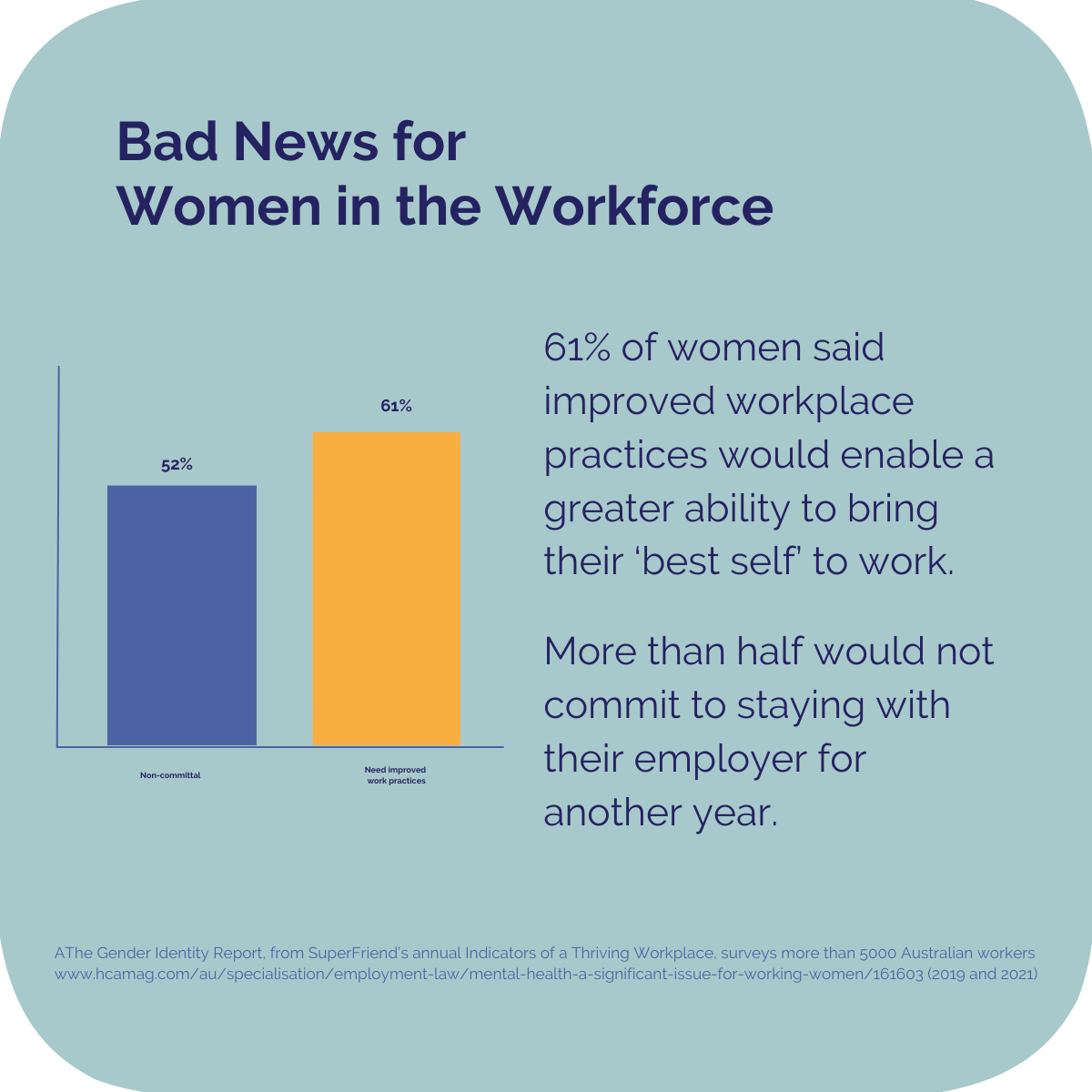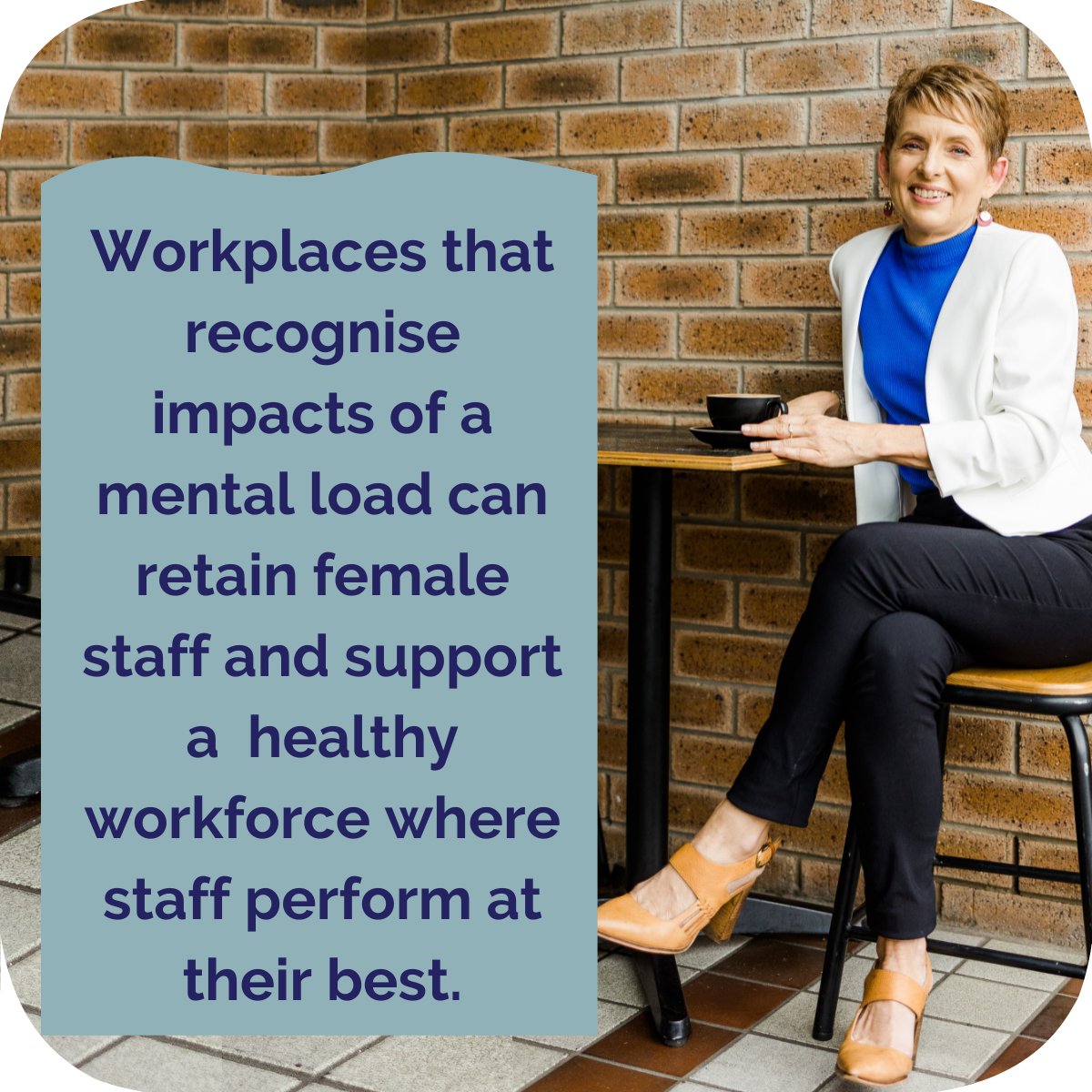Corporate Support
what’s the cost?
A 2021 report into the Future of Work by PwC found that the top two benefits employees wanted as part of their Employer Value Proposition were rewards (25%), and wellbeing (22%). This includes lifestyle incentives like perks, mental health support, wellness and lifestyle benefits and financial support.
We also know that stress-related issues are estimated to cost the Australian economy as much as AU$15b per year. Direct costs to employers are worth approximately AU$10b through absenteeism or presenteeism.
By supporting mental wellness and embedding a psychologically safe workplace, employers can improve staff attraction, retention and productivity.
Deb Rae Solutions has the expertise and resources to help you do this.
mental wellbeing program
Deb Rae Solutions can support you to take advantage of these opportunities to improve staff attraction, retention and productivity. Our Mental Wellbeing Program includes:
Collaborative design of a Mental Wellness Strategy
Initial assessment and benchmarking
How to support employees to ask for help before they reach crisis points
Training for managers who are supporting mental wellness of other staff
Preventative supports before EAP, such as coaching and check-ins
Developing events and resources that support mental wellness
Regular evaluation and feedback against agreed benchmarks
“Working with Deb was a joy as she is organised, knowledgeable, realistic, sensitive and kind.”
The current challenges in retaining employees are undeniable, across Australia and globally. The landscape shifted significantly post-COVID-19, causing employees to re-evaluate their priorities at work. This shift, combined with the prevalent skills gap, has had a substantial impact.
One strategy for organisations to address this gap is to recruit younger employers. By 2025, it’s anticipated that 27 percent of the global workforce will belong to Generation Z. While salaries are a leading option to attract workers, other incentives particularly relate to Gen workers. They have higher consciousness of safety concerns and can easily access digital information about their concerns. The 2023 State of the Future of Work report also indicates that 18 to 34-year-old workers report having poorer mental health than older workers (aged 55 and older).
Leaders who are mindful of the impacts of burnout and create workplaces which integrate genuine, wholistic mental wellness practices are more likely to attract and retain these young workers.
Deb Rae Solutions can assist you to develop a Mental Wellbeing Program that engages and meets the needs of these workers.
supporting women in the workplace
Attracting and retaining staff are key concerns for many organisations, creating issues for production and workplace stress. Providing opportunities for women to take up work roles can help address these issues. However women can face barriers to effective participation, particularly in male-dominated workforces.
Leaders who implement strategies to overcome these barriers have an advantage in their industry. Deb Rae Solutions will support you to develop a workplace culture that encourages effective participation by women, including:
Supporting managers to support female staff
Surveying and consulting with staff to identify and address concerns
Upskilling male and female employees
Reviewing policies and procedures
“Thank you so much for the support you have provided over the last 12 months. You have always maintained such a professional way of working as well as being approachable and real.”
women and the mental load
'Mental load' is a burden experienced by people (usually women) who hold most of the responsibility for managing a household. This includes making endless decisions about every little detail in the family, from organising dinner, choosing the kids’ schools, getting bills paid on time, booking medical appointments and planning birthday parties.
On top of all this, the woman may also have a paid role with its own demands and expectations. Without support, these women may struggle to contribute effectively at work, have poor mental wellness and/or be forced to leave paid work.
Click here to find out more about how to retain female staff in a mentally healthy workforce where they can perform well.
FAQs
-
A preventative approach to managing psychological safety makes good sense - for your staff and for your business’ bottom line.
People want to work in safe environments. The productivity of psychologically unsafe workplaces is impacted by staff taking unplanned leave or resigning due to stress, burn out and/or a perceived lack of support.
The median time away from work due to serious mental stress claims is 27 weeks - that’s more than three times the median time lost for all claims (7 weeks).
Between 2000-01 and 2019-20, the increase in median time lost for mental stress claims was 130%. That was the largest increase over this time period.
-
Employee Assistance Programs can support staff members who are dealing with a current, urgent concern. However, these services can have a wait list and workers may be reluctant to talk with a stranger or struggle to make a connection with them. They may also have concerns about confidentiality.
Deb's mental wellness programs:
provide a crucial step before EAP
pre-empt concerns before they become a crisis
build a worker's capacity to deal with issues as they arise
build ongoing resilience
-
Indicators that you can benefit from support are:
Your organisational practices and policies are not designed for supporting people to maintain their mental wellness.
Your managers, supervisors and team leaders avoid and/or lack skills and confidence in supporting psychological safety of staff.
Your business has high rates of staff unplanned leave, turnover, conflict and employee dis-satisfaction.
-
With over 20 years experience in facilitating group workshops, coaching managers, developing policies systems and working in suicide prevention, Deb and her team can support you to ensure:
Managers and supervisors are confident and capable of designing safe work environments and supporting the psychosocial safety of staff
Psychosocially safe practices are embedded in your workplace culture
All staff contribute to developing meaningful strategies that maintain psychological safety and maximise productivity
Deb's credentials include:
Master of Social Administration
Graduate Diploma of Human Resource Management and Diploma of Management
Mackay’s NFP Manager of the year in AIM’s Management Excellence Awards (2011)
Northern Qld Women in Business Community Dedication Award winner (2019)
-
While there are legislative requirements to meet this Code, there are also risks to your business’ bottom line from not taking action. These include:
Without conducting an assessment, you are unaware of the psychological risks your staff are currently exposed to, which can have a long-term impact on their mental health and your business sustainability.
Productivity could be impacted by staff on leave or resigning due to stress, burn out and/or a perceived lack of support.
Your managers, supervisors and team leaders are now faced with the new and unknown responsibility of supporting staff with mental wellness in the workplace.
You need to spend more and more time dealing with mental health concerns and less time in your core role.





